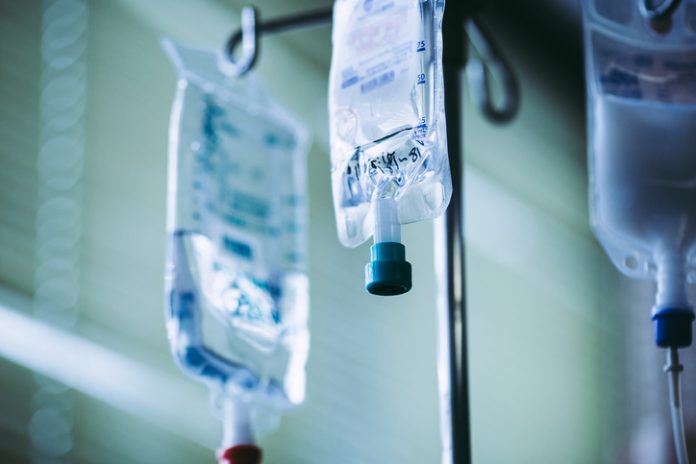Jenny Morrill, a Kingston, New York mother and former arts administrator, had battled ovarian cancer since 2007 when she went for her chemotherapy treatment in June 2011 and the nurse greeted her with good news and bad news.
The good news: she was responding well to the drug Doxil. The bad news: the hospital had no more Doxil to give her. Morrill was not alone. By November 2011, the plant that produced the drug shut down completely, leaving 7,000 U.S. patients without access to its life-saving properties.
Doxil is not the only drug patients have faced trouble getting. The problem has been escalating for many years. Some patients have died as a result. Others are trying to get by on inferior substitute therapies.
Nearly all of the 30 most frequently used emergency department drugs experienced shortages from 2006 to 2019, exacerbating patient harm due to the time-sensitive nature of acute care.
Generic Drugs in Short Supply
Today, there are shortages of 186 to 308 drugs.
Shortages in 2022 include saline solutions potentially needed by almost every patient admitted to the hospital. Almost all of the drugs in short supply, by the way, are generics.
The American Hospital Association reported in 2011 that virtually all the community hospitals it surveyed had experienced a drug shortage in the previous six months. Two-thirds of hospitals had experienced a shortage of cancer drugs; 88 percent were short on pain medications; and 95 percent lacked anesthesia drugs needed for surgery.
Hospitals respond in a variety of ways, including delaying treatment, giving patients less effective drugs, and providing a different course of treatment than the one recommended. Indeed, about 82 percent of hospitals surveyed reported at least occasionally delaying a treatment because of a drug in short supply.
Regulations Limit Production
According to Ezekiel Emanuel in 2011 (who in addition to being White House adviser was also an oncologist), only about 10 percent of shortages were due to a lack of raw materials needed to manufacture the drugs. A more important source of the problem is government policy.
The Food and Drug Administration (FDA) attempts to ensure drug manufacturing processes and facilities meet its quality standards by enforcing a zero-tolerance policy with fines, and by requiring manufacturers to retool both domestic and foreign facilities.
They use a pass-fail system that does not reward companies that exceed minimum required standards, nor accounts for whether a facility is using best practices to anticipate and minimize the occurrence of production problems.
Regulations not only slow the production at particular facilities but also make it difficult for competitors to take up the slack. If a shortage develops because the FDA shuts down a competitor’s plant, for example, a manufacturer must seek FDA approval to increase output and alter its production timetable. This slows down adjustments in production.
Medicare Part B Price Controls
Some drugs administered by physicians—such as chemotherapy drugs or anesthesia during surgery—are paid for through Medicare Part B.
Government price controls prevent the prices of these drugs from adjusting in response to shortages, increases in manufacturing costs, or rises in demand. Normally, the market price of a product rises when it is in short supply, attracting competing manufacturers. However, Medicare discourages this response.
Medicare Part B allows health care providers, such as doctors and hospitals, to charge a small percentage over the drug’s “average selling price” to cover the cost of administering the drug. However, that “average selling price” is calculated across all manufacturers and is based on historical prices.
So, if one manufacturer sees a shortage developing, that manufacturer can legally raise the price of its drug. But since the health care providers that buy it will purchase it at a loss, they won’t want to purchase it. As a result, the shortage won’t be averted.
Competing Only on Price
Regulations also limit the ability of drug makers to communicate improvements in safety, reliability, or efficacy to potential customers. These regulations remove the economic incentives to solve problems the way they would be solved in any normal market. As a result of these and other regulations, firms cannot recoup investments.
At the same time, the pharmacists who fill the prescriptions are implicitly or explicitly required to fill them with the lowest-price generic. The result: There is no competition on any other product feature other than price.
When buyers and sellers are forced to compete on price alone, there will be a race to the bottom on every other product dimension.
Contrast what happens in the market for regulated generics with what happens in the largely unregulated market for aspirin. Because aspirin is sold directly to consumers (rather than through a pharmacist middleman), there can be different prices for different brands and producer reputation matters to many consumers.
I can’t remember when there has been a shortage of aspirin or any other over-the-counter pain relief drug.
340B Price Controls
The federal 340B drug rebate program also contributes to shortages. This program allows hospitals and clinics treating low-income and uninsured patients to dispense drugs purchased at a discount from drug manufacturers but still receive reimbursement from the federal government at full prices.
Hospitals and clinics have gained from these discounts–$6 billion in 2015. But there appears to be no gain for either patients or taxpayers.
John C. Goodman, Ph.D. (johngoodman@goodmaninstitute.org) is the co-publisher of Health Care News and president and founder of the Goodman Institute for Public Policy Research. Adapted from Goodman’s testimony before the U.S. Senate Committee on Homeland Security and Government Affairs on March 22, 2023.





















